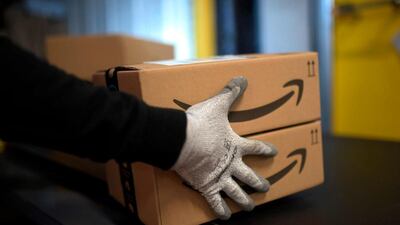E-commerce will account for more than half of the total growth for the global retail sector – an expansion that equates to $1.4 trillion – in the next five years, according to a new report.
Nearly 16 per cent of goods were bought online last year, double the ratio of 2015, and growth is expected to accelerate further between 2021 and 2025, Euromonitor International said in the study. The US, China and Mexico are forecast to achieve the highest e-commerce value growth during the period at $386 billion, $361bn and $77bn, respectively.
“One of the most pronounced impacts from the global pandemic is the expanding influence of tech,” Michelle Evans, senior head of digital consumer research at Euromonitor, said.
“Retailers and brands are prioritising tech investments, which range from optimising supply chain operations to improving user experience,” she added.
E-commerce surged in popularity across all product categories during the Covid-19 pandemic, widening the pool of shoppers and boosting last-mile delivery platforms as more customers turned to digital channels, Euromonitor said.
Companies in Latin America, for example, have been making bigger digital investments due to Covid-19, the research company said. They are investing in developing website experiences, adding direct-to-consumer operations and partnering with delivery services.
The region is forecast to achieve the highest e-commerce growth of more than 21 per cent among all regions by 2025. It will be followed by Eastern Europe (12 per cent) and the Middle East and Africa (11 per cent).
For more than 70 per cent of retail professionals globally, the Covid-19 pandemic fast-tracked their digital transformation by at least one to two years. More than 20 per cent said it fast-tracked processes by three to five years, said Euromonitor said.
More than 75 per cent of professionals said their companies believe having a digital presence is an important component of their value proposition.
However, the rapid digital transformation has put challenges into greater focus for traditional business models and physical stores, Ms Evans said.
“It is vital to re-evaluate strategy for businesses to stay competitive in the ever-growing digital sphere,” she added.
The coronavirus pandemic has accelerated the shift to a more digital world, the United Nations Conference on Trade and Development said in a report last month. For example, 7.3 million Brazilians shopped online for the first time during the pandemic. In Argentina, the number of first-time online buyers was equivalent to 30 per cent of the 2019 online shopping base.


